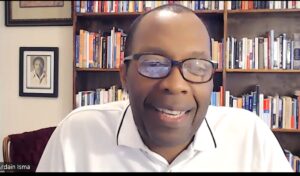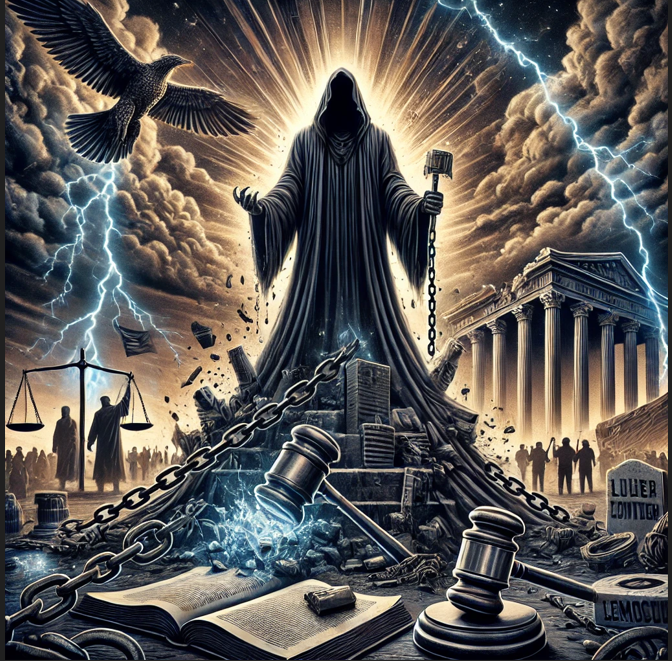Ardain Isma
CSMS Magazine
In the annals of human history, few forces have proven as dangerous and corrosive as the concentration of absolute power. From ancient empires to modern autocracies, the allure of unchecked authority has led to the erosion of freedoms, systemic corruption, and societal decay. Today, as democracies grapple with rising authoritarian tendencies and the fragility of governance structures, it is imperative for civilian societies to recognize their role in safeguarding openness and accountability. The absolute taste of absolute power is not merely a historical concern—it is a contemporary challenge that demands vigilance and action. For this article, I believe it is essential to outline the key components that readers must understand about this important matter.
The Danger of Absolute Power in Modern Contexts
- Erosion of Democratic Norms
- In modern societies, the centralization of power often begins subtly, with leaders undermining democratic norms under the guise of efficiency or security. Whether through the suppression of dissent, the weakening of judicial independence, or the manipulation of media narratives, these actions pave the way for authoritarian control. Once established, absolute power allows leaders to act without accountability, making it nearly impossible to reverse their grip on authority.
- Corruption and Inequality
- Absolute power fosters an environment where corruption thrives. Without oversight, resources are often diverted for personal or political gain, widening the gap between the ruling elite and the general populace. This exacerbates social inequalities, erodes trust in institutions, and fuels public discontent.
- Suppression of Civil Liberties
- Historically, absolute power has often led to the suppression of freedoms—speech, press, and assembly. In modern societies, this suppression can take the form of surveillance states, censorship of dissenting voices, or the criminalization of political opposition. The result is a society where fear replaces freedom and conformity stifles creativity.
The Role of Civilian Society in Preventing Absolute Power
Preventing the rise of absolute power requires active participation from civilian society. It is the civic duty of every citizen to contribute to the development of an open and accountable society. Here are actionable steps that individuals and communities can take:
- Promote Civic Education
- A well-informed citizenry is the cornerstone of a functioning democracy. Citizens must understand their rights, the principles of governance, and the mechanisms of accountability. Civic education should emphasize the importance of transparency, the rule of law, and the separation of powers.
- Demand Accountability
- Citizens must hold leaders accountable through peaceful means, such as protests, petitions, and advocacy campaigns. Supporting independent watchdog organizations and investigative journalism can also play a critical role in exposing corruption and abuses of power.
- Engage in Political Processes
- Participation in elections, town hall meetings, and public consultations ensures that diverse voices are heard. Citizens should demand fair electoral processes and support candidates who prioritize transparency and democratic values.
- Strengthen Civil Society Organizations
- Non-governmental organizations, community groups, and advocacy networks serve as vital checks on power. Supporting these organizations through donations, volunteer work, or active membership strengthens their ability to counterbalance government overreach.
- Foster Open Dialogue
- An open society thrives on the free exchange of ideas. Encouraging debates, respecting diverse perspectives, and combating misinformation are essential for preventing the centralization of power.
- Resist Complacency
- One of the greatest threats to democracy is public apathy. Citizens must remain vigilant and proactive, understanding that safeguarding freedoms is a continuous process requiring collective effort.
The Moral Imperative of an Open Society
At its core, the struggle against absolute power is a moral one. An open society values inclusivity, equity, and human dignity. It prioritizes the well-being of its citizens over the ambitions of its leaders. The taste of absolute power may be intoxicating for those who wield it, but its consequences are devastating for the many who suffer under its weight.
The responsibility to prevent such concentration of power rests not solely with institutions but with the people. Every citizen, through their actions and choices, contributes to the preservation or erosion of democratic values. By recognizing this responsibility, civilian societies can ensure that the allure of absolute power is met with the resolute strength of collective vigilance.
Finally, the dangers of absolute power are not confined to history books; they are a persistent threat in modern societies. Yet, the antidote lies within civilian society itself. Through education, engagement, and accountability, citizens can work to build more open, transparent, and equitable communities. The fight against absolute power is not a battle fought once but a lifelong commitment to democratic principles. In this effort, every voice matters, and every action counts.
 Note: Ardain Isma is the Chief-Editor of CSMS Magazine. He is the author of several books, including Midnight at Noon, Bittersweet Memories of Last Spring, and Last Spring was Bittersweet. You can order these books by clicking on the links above.
Note: Ardain Isma is the Chief-Editor of CSMS Magazine. He is the author of several books, including Midnight at Noon, Bittersweet Memories of Last Spring, and Last Spring was Bittersweet. You can order these books by clicking on the links above.


